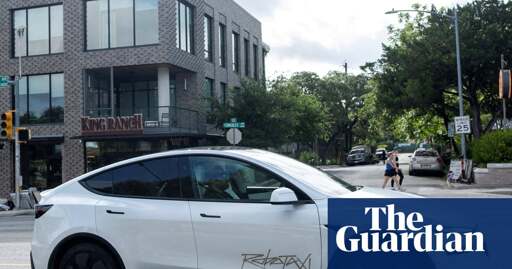The company’s rollout of its new driverless cars has gotten off to a wobbly start – and rival Waymo remains well ahead
After years of promising investors that millions of Tesla robotaxis would soon fill the streets, Elon Musk debuted his driverless car service in a limited public rollout in Austin, Texas. It did not go smoothly.
The 22 June launch initially appeared successful enough, with a flood of videos from pro-Tesla social media influencers praising the service and sharing footage of their rides. Musk celebrated it as a triumph, and the following day, Tesla’s stock rose nearly 10%.
What quickly became apparent, however, was that the same influencer videos Musk promoted also depicted the self-driving cars appearing to break traffic laws or struggle to properly function. By Tuesday, the National Highway Traffic Safety Administration (NHTSA) had opened an investigation into the service and requested information from Tesla on the incidents.



This was him justifying what was a cost saving decision that became a face saving battle for him personally as everyone told him he was wrong.
If there is one thing Elon cannot stand above all others is admitting he was wrong, especially when he has spent years promising this and now he would have to retrofit at his cost Lidar to all those cars he sold as self driving ready with an expensive optional extra.
He might be able to avoid any sort of punishment from the US government as long as he stays in Trumps good books, but he will not be able to do so in Europe or similar.